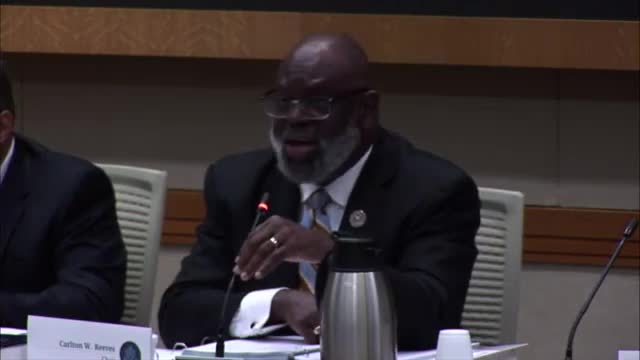DOJ and probation warn of evidentiary burden if USSC makes obliterated‑serial‑number amendment retroactive; defenders, tribal advisers say manageable
Get AI-powered insights, summaries, and transcripts
Subscribe
Summary
The commission held a panel on a guideline change that establishes an ‘‘unaided‑eye’’ test for determining whether an altered or obliterated firearm serial number is legible for purposes of a four‑level enhancement.
The commission held a panel on a guideline change that establishes an ‘‘unaided‑eye’’ test for determining whether an altered or obliterated firearm serial number is legible for purposes of a four‑level enhancement.
Paige Messick, appellate chief for the U.S. Attorney’s Office for the District of New Mexico, told the commission the Department of Justice opposes retroactive application. Messick said records and PSRs often lack the detail needed to determine whether a serial number was legible and that applying the new test to historic records “would mire the courts on hard questions and in potentially unresolvable factual disputes.” She said her office reviewed a five‑year sample and found photographic or clear serial‑number detail in only a small fraction of cases.
On the other side, defense counsel argued the amendment resolves a circuit split and would remedy racial and geographic disparities in application. Adeel Bashir and other defenders told the commission the likely number of eligible cases per district is small and that defense offices typically will triage and file the strongest eligibility claims. “We’re really talking about a small universe of cases again,” Bashir said.
The Probation Officers Advisory Group and the Victims Advisory Group emphasized evidentiary and victims’‑rights concerns. POAG witnesses said the amendment’s retroactive application would often require assessing a still‑existing weapon or photographic evidence; many firearms are destroyed and photos may be inconclusive. The Victims Advisory Group cautioned that reopening cases could retraumatize victims and pointed to 18 U.S.C. §3771; the panelists said victims’ rights are triggered when a previously closed sentence is revisited.
Witnesses described local practices that reduce workload: triage meetings among defenders, probation and U.S. Attorney offices; omnibus orders and written screening reduce the number of contested court hearings. Defense witnesses said experience from prior retroactivity rounds shows actual filings are far lower than initial “outer bound” estimates and that much of the screening work falls to defenders.
Commissioners asked whether photos or physical evidence could be produced to resolve questions in specific cases; witnesses said firearms are not always preserved and case records are inconsistent. Several commissioners and witnesses noted the amendment resolves a circuit conflict and that the number of potentially affected cases is low, but they disagreed on whether that reality justified retroactivity.
Ending: The commission paused the panel and said it would consider the written comments and testimony before making any retroactivity determination.
